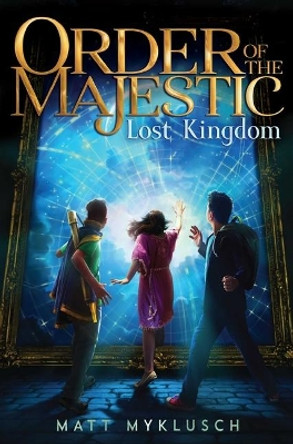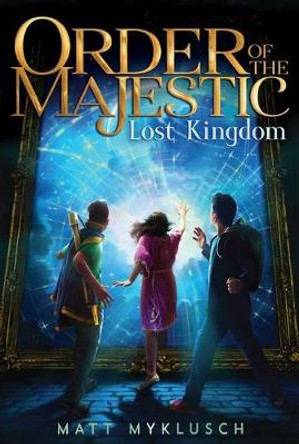Description
A fast-paced romp through apartheid-era South Africa that exemplifies the creative human capacity to overcome seemingly omnipotent enemies and overwhelming odds.
The picaresque hero of this novel, Duggie, is a dispossessed black street kid turned con man. Duggie's response to being confined to the lowest level of South Africa's oppressive and humiliating racial hierarchy is to one-up its absurdity with his own glib logic and preposterous schemes. Duggie's story, as one critic puts it, offers "an encyclopedic catalogue of rip-offs, swindles, and hoaxes" that regularly land him in jail and rely on his white targets' refusal to admit a black man is capable of outsmarting them.
Duggie exploits South Africa's bureaucratic pass laws and leverages his artificial leg every chance he gets. As "a worthless embarrassment to the authorities and a bad example to the convicts," Duggie even manages to get himself thrown out of jail. From Duggie's Depression-era childhood in urban Johannesburg to World War II and the rise of the white supremacist apartheid regime to his final, bitter triumph, Boetie's narrative celebrates humanity's relentless drive to survive at any cost.
This new edition of Boetie's out-of-print classic features a recently discovered photograph of the author, an introduction replete with previously unpublished research, numerous annotations, and is accompanied by Lionel Abrahams' haunting poem, "Soweto Funeral," composed after attending Boetie's interment, all of which render the text accessible to a new generation of readers.
This fictionalized, first-person biography tells how a cunning rogue with nothing to lose relies on his guts and wits to survive amid racism and injustice in apartheid South Africa.
About the Author
Dugmore Boetie is the pen name of South African journalist, writer, and musician, Douglas Mahonga Buti (c.1924-66). Vusumuzi R. Kumalo is lecturer in history at Nelson Mandela University in Port Elisabeth, South Africa. His research explores the history of independent black education. Benjamin N. Lawrance is an author and editor of eleven books, and editor in chief of the African Studies Review. He is professor of History at the University of Arizona. Benjamin N. Lawrance is an author and editor of eleven books, and editor in chief of the African Studies Review. He is professor of History at the University of Arizona. Vusumuzi R. Kumalo is lecturer in history at Nelson Mandela University in Port Elisabeth, South Africa. His research explores the history of independent black education.
Reviews
"A rare gem of African literature. I believe a critical edition at this time will lead to its rediscovery by scholars of African and postcolonial literature everywhere....It is a swashbuckling mixture of truths, lies, dead seriousness, contradictory self-inventions, levity, exaggerations, and all through poignant recordings of soul-crushing apartheid's impact on black life in South Africa. On theme and style, it was postmodern before that concept became common currency everywhere." -- Tejumola Olaniyan, the late Louis Durham Mead Professor in English and Wole Soyinka Humanities Professor at the University of Wisconsin-Madison
"The novel has vital documentary value for the manner in which it represents the criminal underworld of the townships in the apartheid years, the manner in which black males negotiated the treacherous politics of race at the time, and the questions it raises about collaborative writing and authorship in a context of severe repression and deprivation....[It] will be of interest to professors teaching courses about the South African apartheid years and seeking to assign a range of texts that offer a flavor of the times from a variety of vantage points." -- Moradewun Adejunmobi, professor of African American and African Studies, University of California, Davis.
"This new edition of Dugmore Boetie's enigmatic and complex narrative introduces the work to a new generation of readers. The editors contextualise the text within the current scholarship on race and authorial agency in South Africa, and provide imaginative and useful notes for readers less familiar with the enduring legacies of apartheid." -- Carli Coetzee, editor of Journal of African Cultural Studies
"Based on meticulous archival research and interviews with descendants and acquaintances of the author, this new critical edition of Dugmore Boetie's fast-paced, semi-autobiographical text will be welcomed by a new generation of scholars, teachers, and readers. In a compelling introduction that provides historical, geographical, and biographical context, the editors also invite us to think about such issues as authorship, genre, and black male identity in apartheid South Africa. The apparatus they provide in the form of notes to each chapter will make unfamiliar language and contexts accessible to readers. Bravo to the editors for making available once again a text that deserves to be more central to the canon of African literature." -- Gaurav Desai, professor of English, University of Michigan
"Awash in anguish and antic wit, brazen falsehood and hard-won truth, Dugmore Boetie's Familiarity is the Kingdom of the Lost remains as brilliant, urgent, and utterly unclassifiable today as when it first appeared half a century ago. This edition includes not only Nadine Gordimer's original foreword and Barry Simon's (rueful) afterword, but also a new introduction by Benjamin Lawrance and Vusumuzi Kumalo illuminating the making of the book and the stranger-than-fiction story of its real-life author, Douglas Buti. What a gift." -- James T. Campbell, author of Middle Passages: African American Journeys to Africa
"A racy picaresque novel presented as a memoir; more accurately, a literary con. Whatever its genre, it is a flight of wild comic exaggeration and invention that is not only vibrantly funny but a more honest expression of the despair of black South Africans than any number of moralizing exhortations." -- Joseph Lelyveld * New York Times Book Review (1970) *
"Nothing like this bullet-like prose has shot out-or been provoked out-of anywhere before. For it is a book with all of life and death in it, including a marvellous lack of pretence at human or artistic perfection." -- Myrna Blumberg * The Guardian (1969) *
"There are images in this book that burn the mind." * Publishers Weekly (1970) *
"Duggie is the distillation of urban African experience. Without parentage or tradition, he makes the whole of black South Africa his playground. The succession of pocket-pickings, robberies, hi-jackings, and confidence tricks constitutes a primer of Johannesburg's criminal underground." * The Journal of Commonwealth Literature (1972) *
"Dugmore Boetie was a thief, a convict (many times), part of a jazz combo and a con man extraordinary. Yet in a South Africa where blacks are humiliated, frustrated, deprived of basic human rights, a cynical agility is an edge on crushing destruction." * Kirkus Reviews (1969) *
Book Information
ISBN 9780821424353
Author Dugmore Boetie
Format Paperback
Page Count 220
Imprint Ohio University Press
Publisher Ohio University Press









